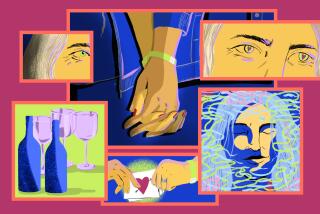Indio’s Date With Destiny
INDIO — Let’s start with the date shake. By all accounts, the Coachella Valley’s most famous refreshment was invented by one Russ Nichol, proprietor of the Valerie Jean Date Shop. This was back in the ‘40s and Nichol, in a small stroke of genius, decided he would take advantage of two essential facts of life in Indio.
First, summers here were very hot. Indio is stuck at the tail end of the Coachella Valley just down the road from Thermal, and Thermal didn’t get its name for nothing. In the ‘40s, before air conditioning, the heat of an Indio summer would drive people a little crazy. They’d do anything for a moment’s relief.
Second, the date market was sluggish. As usual. Ever since the first palm tree produced the first commercial date in Indio in the 1920s, no one had figured out quite what to do with a fruit that went by names like Deglet Noor, Medjool and Halawi. Whatever made the Arabs love dates, Americans hadn’t figured it out. So one day Nichol took a standard milkshake and mixed in some date nuggets. He whirred the whole thing in a blender and tried a sip. It was delicious. And cold. Soon the date shake was a phenomenon. It became a sort of icon of the desert, the thing you simply had to have when motoring into the strange world beyond Palm Springs.
I tell this story because the invention of the shake remains the first triumph in the marketing of dates. And the last. Once the flutter over the shake died down, the date business returned to its sleepy ways, stuck in its role as a mere curiosity of the desert. The farmers of Indio abandoned their dreams of becoming date tycoons.
Until now. In one of the stranger ironies of our time, the date groves are once again alive with ambition. Times are flush, and growers talk of world markets with the confidence of bankers. And they owe it all to Saddam Hussein.
Here’s what happened: when Hussein invaded Kuwait and brought down the world’s wrath, there were repercussions beyond the oil markets. The economic embargo slapped on Iraq not only shut down the country’s sales of crude but also its major agricultural export--dates.
For reasons too complicated to explain here, Iraq more or less owned the world export business in dates. They sold to the British, they sold to the Japanese, and even here in the United States they sold more dates than did all the farmers of the Coachella Valley.
But no more. For the last four months there have been zero exports of dates from Iraq. Geopolitics has shut down the date pipeline, and someone will have to step in and pick up the slack. The farmers of the Coachella hope it will be they.
Charlotte Stocks thinks it’s about time. The dates of the Coachella Valley are better than Iraq’s imports anyway, she says. Stocks and her sister, Catherine Kerby, have run the groves of Covalda Date Co. since their father retired some years ago. They both grew up in the groves and say it’s always been a struggle.
In the 1940s the family went bankrupt trying to fight a big co-op that wanted to control dates in the valley. Eventually the co-op dissolved and the family rebuilt their business. In recent weeks, Stocks says, they have been getting inquiries about dates from “people with strange accents.” She figures they are Middle Easterners living in America who once bought Iraqi dates. Now these people are about to discover, she says, just how good American dates can be.
Down the road there are Ben and Pat Laflin, whose family planted some of the first date palms in the valley. Their father came to Coachella Valley after contracting malaria in the oil fields of Oklahoma. The desert cured him and he grew dates the rest of his life.
Pat Laflin is dubious that dates will turn into the wonder crop of 1990 because of the Gulf crisis. She’s heard it all before, and has been disappointed before. Still, she says, you never know. There’s a lot of Japanese, a lot of Europeans, and they all need dates.
The date people are conscious, above all, that they have something rare to offer the world. Very few places can grow date palms, and the Coachella Valley is the only spot in the United States that’s managed it successfully.
If only the world will now notice. And care. Outside their roadside stands, the signs beckon as always. “Say it with Dates,” they urge, or “Remember a Friend Today.”
And at the bottom of each sign is the other, eternal message. The one the farmers hope the world will see. It simply says, “We ship anywhere.”
More to Read
Eat your way across L.A.
Get our weekly Tasting Notes newsletter for reviews, news and more.
You may occasionally receive promotional content from the Los Angeles Times.







